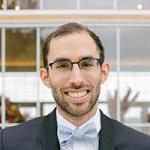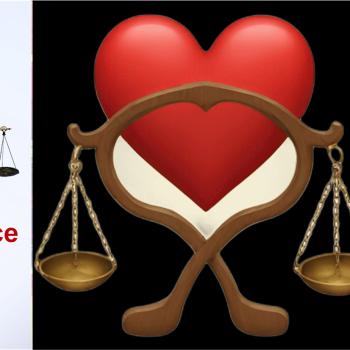First, in such a place, the Church provides a haven for the minority faithful -- not least of all those church-running ladies, but also for those few convert believers who need refuge from the prevailing irreligion. Many, perhaps most of these, are literal political refugees from North Africa or Eastern Europe, ill-adapted to a religionless environment. Some, however, are native exceptions, not unlike the believing homosexuals in contemporary Mormondom, who need respite both in and from the community to which they are native. If their foreordained gift is faith, they need someplace to turn where that destiny is a blessing instead of a burden. You will find such refugees active and gratefully at home in LDS congregations in Germany.
My second reason is to me a matter of some surprise. If I have a spiritual gift, I have long suspected that it is skepticism. In our household of testimony, I have sought out my communities of refuge among those who take their religious enthusiasms with a dose of industrial salt. And yet, I have come to believe that the struggling church in Germany provides a habitat for miracles, albeit small and often awkward in kind, and that these, like other endangered species, deserve preservation. I'll recount just two such wonders here, bookends to my experience, though I'm aware of others.
At the time of my German mission, the bishop of the Altoona Ward in Hamburg seemed to me a kind of miracle, partly because he was a Mormon at all, and partly because he was a bishop. He counts certainly among the most educated men I have met. His interest in religion was tempered by an analytical mind and natural cultural pessimism. Yet that interest was piqued when he ran across an ad in the newspaper. "Anyone interested in religion, write to this address." Strange ad, but it made him curious, and he wrote, whereupon two Mormon missionaries appeared at his door. They were pleasant young men from America, so he heard them out. Of course their story was ridiculous. And their grounding in history shaky. Their claims were, he felt, easy to refute. He thanked his young guests and excused himself from further meetings. He was really not interested.
Yet in the following week, he found he could not get those young men or their story out of his mind. So he contacted them again, had them come by, in order to reassure himself, as indeed he did, that their story was fabulation, their religion improbable. Again he sent them away with his thanks and the assurance that he really was not interested. As the bishop told the story, within a week, he had called them back again. And sent them away. Back and away, again and again, each time convinced that the message was sham, and each time unable to put it out of his mind. When finally months later he was baptized, it was a matter of exhaustion, capitulation. He'd been drawn by that curious ad onto a road to Damascus that would revolutionize his life.
That much was miraculous already, but what stunned me altogether was that this man, who was older, university educated, tastefully affluent, unmarried, and by profession a coffee importer, had been called as a bishop. It did not occur to me then to speculate in ways that would seem natural now that he might well be divorced or even gay or quite possibly both. Though if neither, he still fell so far outside institutional norms of marital and class and professional status that only a miracle could explain his election. I like to think that those authorities who called him were equally surprised, indeed, that they resisted an inspiration so radically counterintuitive, acceding only as a matter of exhaustion and capitulation. This was, of course, a modest miracle, and once installed, the new bishop seemed as natural as mahogany banisters and carved moldings in the elegant mansion that served as a chapel on Hamburg's baronial Elbschausee. For all kinds of happy reasons, this man was precisely the leader needed by that congregation in a turbulent time.
The second miracle is recent and minor and personal but important to my family and me. Preparing to travel to Germany in 1999, I remembered hearing of a journal, Die Betrachtungen, which was a German counterpart to Dialogue: A Journal of Mormon Thought, of which my wife and I had just become editors. It would, in other words, be an independent German language journal for research and thinking and creative writing about Mormonism and Mormons. Through a friend, I secured an email address for the editor and sent him a message saying we would love to meet with him and possibly talk about exchanges between the journals. I received no answer, and we resolved that once established overseas, we could travel to Berlin, attend church there, and inquire among members. Surely, somewhere in a city as large and cosmopolitan as Berlin, there must be a Dialogue sort of Mormon, someone who could show us a copy of this journal and perhaps even direct us to the editor.




